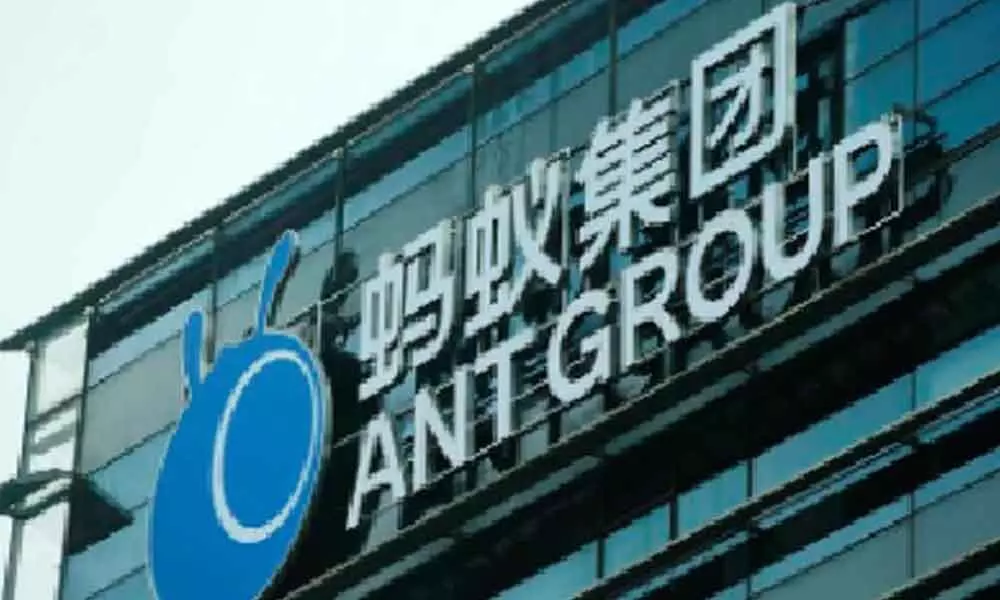China Inc's IPO haul from US tops records
Country has witnessed fastest recovery than any other major global economies
image for illustrative purpose

China Inc raised money at home and overseas in initial public offerings like never before, buoyed by the country's early emergence from the pandemic.
Firms like the healthcare affiliate of e-commerce giant JD.com Inc. and gaming platform NetEase Inc listed in Hong Kong and helped boost initial public offerings and secondary listings from Chinese companies to a record $129 billion in 2020, according to data compiled by Bloomberg.
Mainland firms, listing in the US, Hong Kong, and on Chinese exchanges, made up as much as 37 per cent of the value of global offerings this year. This was China's highest share of the worldwide IPO pool since 2009 when the global financial crisis sapped listing activity in the US.
"China has clearly seen the fastest recovery of any of the major global economies this year," said Francesco Lavatelli, head of equity capital markets, Asia Pacific, at JPMorgan Chase & Co. adding that equity investors seeking returns amid low interest rates have flocked to Chinese shares.
They managed this feat despite two major headwinds: the shock suspension in November of fintech giant Ant Group Co.'s $35 billion dual Hong Kong-Shanghai float and the passing by the US Congress of legislation earlier this month that would force Chinese companies to delist from American exchanges unless they comply with US auditing rules.
In fact, Chinese companies had anticipated a stricter stance by the US toward them even before the passing of the legislation and had been seeking out Hong Kong listings as a hedge against being banned from trading stateside. During the year, a spate of so-called "homecoming" listings raised billions of dollars in Hong Kong share sales in 2020. That came on the heels of New York-traded Alibaba Group Holding Ltd.'s secondary offering in the city last year.
The flurry of deals - especially in the tech and health-care space, both areas that thrived during the pandemic - upended banker concerns early in the year of an IPO drought.
As the coronavirus outbreak raged on, fears of muted equity capital markets activity dissipated. Companies affected by Covid-19 lockdowns raised funds in record levels to shore up their balance sheets. On the flip side, a flood of liquidity from central banks aimed at countering Covid-19's economic damage as well as low interest rates whetted investor appetite for new share offerings. "Sitting on the sidelines putting your cash in a bank account is costly at the end of the day," said Gaetano Bassolino, head of global banking, Asia Pacific, at UBS Group AG. "That has really changed the way investors look at risk."
IPO volumes in the US also hit an all-time high this year, with about $173 billion in total raised not just from listings by the likes of American tech startups Airbnb Inc. and DoorDash Inc. but also Chinese electric vehicle maker Xpeng Inc. and online property broker KE Holdings Inc.
At home, China accelerated reforms in its IPO market, allowing wider daily swings in newly listed shares. Hong Kong had eased rules for new-economy listings in 2018, opening the gates for tech firms with dual-class shares to go public in the city.
Most of the biggest listings by Chinese companies this year have had some tech element. Chipmaker Semiconductor Manufacturing International Corp.'s $7.5 billion July listing in Shanghai is the biggest float this year by a Chinese firm, followed by the $4.5 billion secondary listing in Hong Kong by Nasdaq-traded JD.com Inc in June.
The queue of listings and investor appetite for new stock show no signs of slowing even as the year comes to a close. On the back of the best-ever month for global stocks, JD's health-care unit raised $3.5 billion in Hong Kong and went on to per cent on its debut last week. Mainland toymaker Pop Mart International Group Ltd. jumped 79 per cent on its first day of trading three days later. (Bloomberg)

